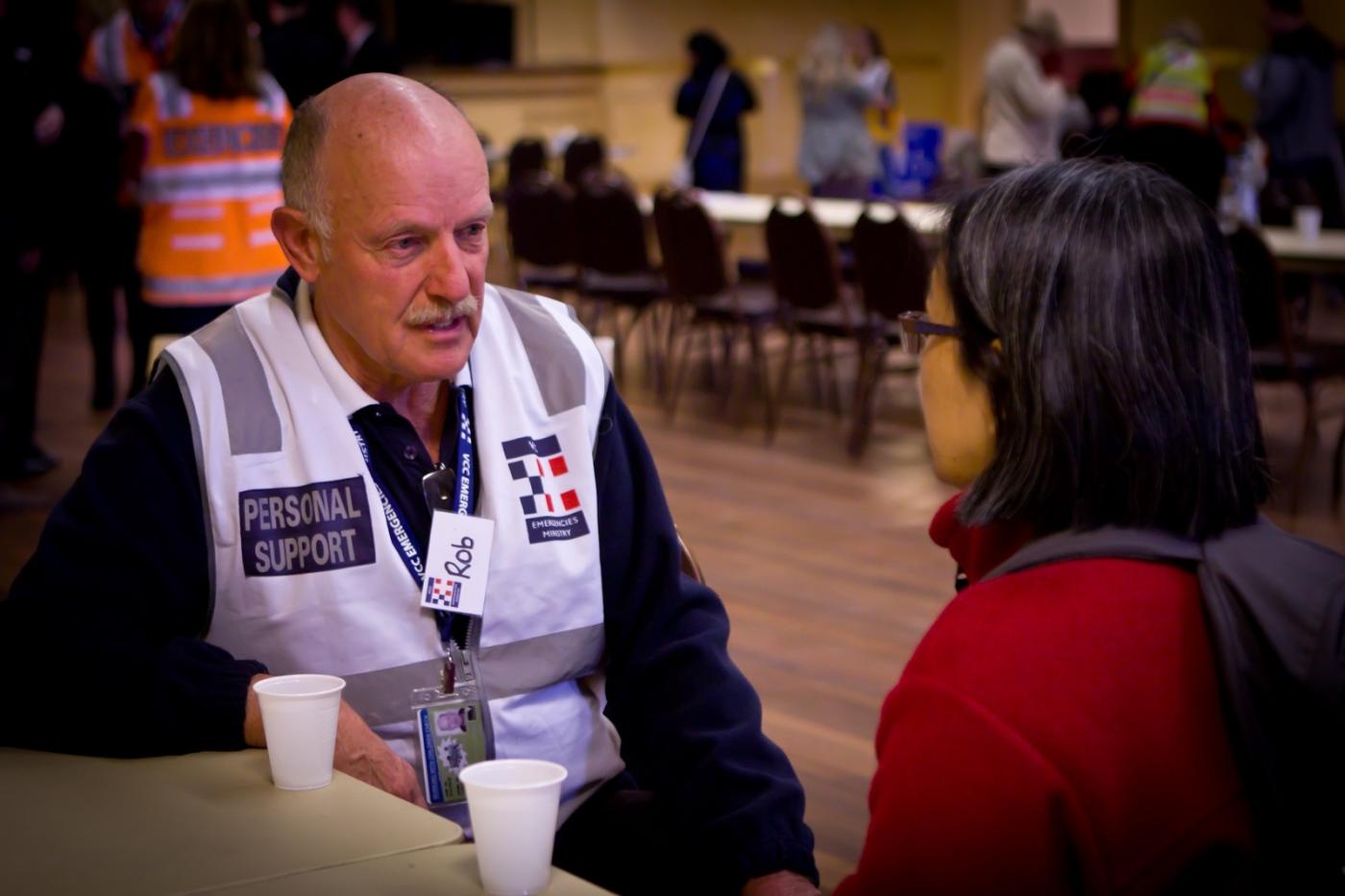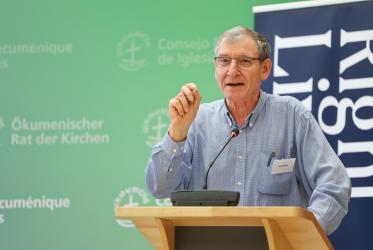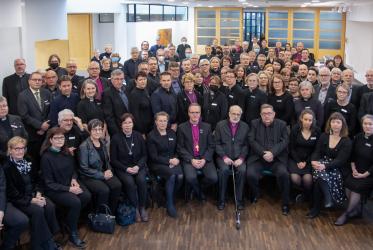By Peter Kenny*
Red and smoky skies at night and in the morning* looming in four Australian states indicate a catastrophe of biblical proportions as killer fires engulf towns and communities, leaving tens of thousands of people stranded.
Churches have been at the forefront among the responders in both their prayers and deeds as Australians in four states including New South Wales and Victoria reel under flames, with thousands fleeing in the first days of a new decade.
The general secretary of the World Council of Churches (WCC), Rev. Dr Olav Fykse Tveit, has said (in a pastoral letter) to Australian churches, "Together with you, WCC member churches around the world are praying for respite from the heat and the flames, for the protection and encouragement of all those fighting the advancing fires, for the preservation of peoples' lives and properties, and of the unique wildlife and environment threatened with destruction."
Tveit notes, "Australia has, since time immemorial, been accustomed to fire and drought."
The fires had killed 20 people by Friday, destroyed almost 6 million hectares (15 million acres), and gutted more than 2,500 buildings. Some clerics have sharply criticized the Australian government's stance on fighting climate change.
The Anglican Diocese of Melbourne has a 'graphic' prayer on its front webpage.
Bishop Philip Huggins is president of the National Council of Churches in Australia and director of the Centre for Ecumenical Studies at the Australian Centre for Christianity and Culture, said in a message to the WCC that many people of faith are involved in helping in all kinds of practical ways.
Hotter dryer summers
"Harder to discuss yet is the anger. Hotter, dryer summers are exactly what have been expected. Political ineptitude has left us more vulnerable than might have been the case," rued Huggins.
In 2019, Australia topped its charts for average and maximum temperatures as well as the lowest annual rainfall across the country. The conditions contributed to the unprecedented fires impacting many corners of the country.
Emily Evans of the Uniting Church in Australia and a member of the WCC Executive Committee said Australia is in a national crisis.
"A state of emergency has been declared in New South Wales, a state of disaster in place in Victoria as both states brace for a weekend of continued bushfires and the largest peacetime evacuation in the nation's history is underway," Evans told the WCC.
Australian churches and members through front-line ecumenical organizations, like the Victorian Council of Churches Emergency Ministries and the New South Wales Disaster Recovery Chaplaincy Network, are on the ground.
"Chaplains are offering personal care, psychological first aid, and emotional and spiritual support at relief and recovery centres in the impacted areas to those affected by the ongoing situation," said Evans.
Churches are also encouraging their members to provide direct financial support to official appeals.
Archbishop Glenn Davies, of the Anglican church in Sydney and New South Wales, appealed for Christians to be in fervent prayer.
"Our hearts cry out to you for those who have lost loved ones, and those who have lost properties in the wake of these ravaging fires. Father, we pray, in your mercy, restrain the forces of nature from creating catastrophic damage; in your mercy protect human life,” the archbishop's prayer reads.
‘Guard the volunteers’
"Guard those volunteers, rural fire service personnel and emergency services who selflessly step into the breach to fight these fires. Guide police and authorities who help evacuate and shelter those who are displaced. Bring comfort and healing to all who suffer loss," said the Anglican leader.
Davies praised the work of Anglican Aid, which continued its drought and bushfire appeal, and the work of Anglicare's Disaster Recovery Response.
Teams of trained Anglicare volunteers are giving practical aid such as helping prepare meals, providing clothing, bedding and towels for showers, and helping with displaced pets.
The Australian Catholic Bishops Conference extended its national prayer campaign for drought as historically dry conditions continue to affect most parts of Australia.
"We can't forget the many suffering through these catastrophic drought conditions, which are very much part of the bushfire crisis we are seeing in large parts of the country," Bishops Conference president Archbishop Mark Coleridge said.
The Bishops Conference initiated the prayer campaign held during November 2019 but decided it should run indefinitely until drought conditions ease.
"Many parishes and dioceses had local initiatives before the national campaign began and many have continued to focus on the drought and the ongoing bushfires in the weeks since the end of November," Coleridge said.
‘Difficult days’
Rev. Simon Hansford, moderator of the Uniting Church in Australia, had released a pastoral letter at the turn of the year "in the midst of the bushfires," cautioning, "These are difficult days, and there are more difficult days to come."
Hansford said he had been talking with Rev. Dr Stephen Robinson, who coordinates Disaster Response for the whole Uniting Church.
"We have chaplains at each evacuation centre, the numbers of which are growing, as people flee their holidays and their homes to comparative safety," said the moderator.
He issued a special prayer saying, "God of life and death, our prayers today are where our hearts and minds have been during these last days and where they have been drawn so early in this season; with those communities and individuals whose lives have been damaged in differing ways by the bushfires."
God is asked to intervene for all those fighting the fires, Hansford said.
"We pray for those who have lost their home and property or are facing such loss: for those who have been forced to leave their memories and belongings; for the fear and disorientation of all involved; Heal them from their nightmare memories," he prayed.
Global news media has shown scenes of Australia ravaged by the worst wildfires seen in decades, with large swathes of the country destroyed since the annual fire season began in September.
* The old saying, "red sky at night, shepherd's delight. Red sky in the morning, shepherd's warning" is said to have its origins in Matthew's gospel (16:2b–3) in a confrontation between Jesus and the Pharisees.
* Peter Kenny is a freelance journalist based in Geneva.





